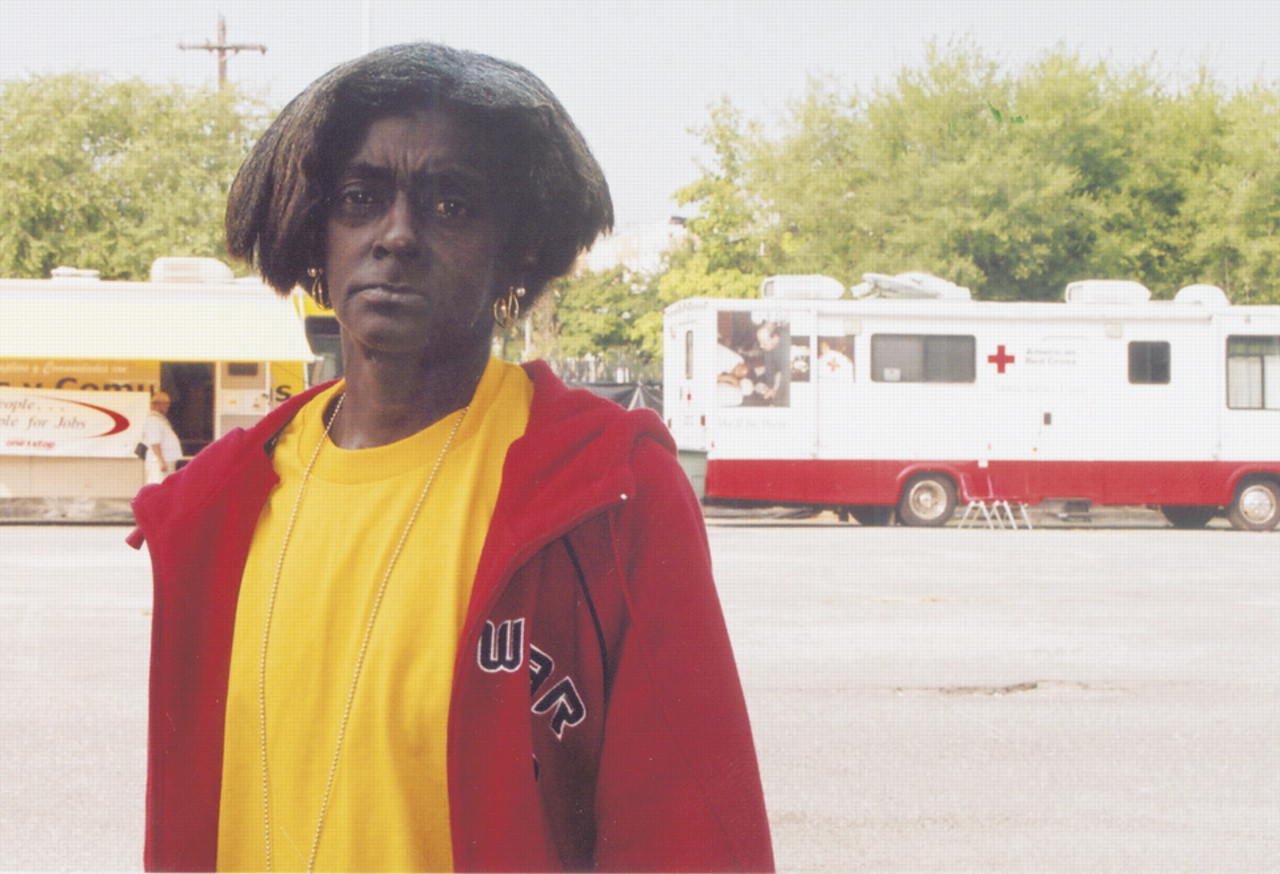Evacuees Able to Flee Devastation, But Not Trauma It Caused

Irene Gibbs of New Orleans is on the cusp of a new life in Maryland. Eve Bender
New Orleans resident Irene Gibbs was one of many who depended on a battery-powered radio to stay tuned to information about evacuation procedures after Hurricane Katrina hit and the city began to fill with water.
So when New Orleans officials asked residents to make their way to the Ernest N. Morial Convention Center, she did just that.
Together with her two grandchildren, a neighbor, and the neighbor's husband, they waded through waist-high water.
Gibbs brought some food from home to the convention center, where there was none to be had. She shared it with those around her, and it was quickly gone, she said.
Food was eventually dropped from a military helicopter, Gibbs noted, but from a height of more than 100 feet. “It just shattered when it hit the ground,” she said. Evacuees fought over what was left.
While staying outside the convention center for five days and nights with thousands of others, fear reigned. “There was fighting going on. There was killing going on. There were rapes going on,” she said.
Gibbs's first priority was to keep her grandchildren safe. “I didn't sleep at all. I sat up and watched my girls.”
When the National Guard arrived at the convention center, they carried pump-action shotguns and screamed at the crowds who had gathered there to“ get down on the [expletive] ground,” according to Gibbs. “I just prayed to the Lord that someone would come and save us.”
Eventually a bus took Gibbs and her granddaughters to Arkansas, and another bus brought them to the D.C. Armory.
Gibbs said she was treated “wonderfully” while at the armory and had found a place to live in Maryland.
“At first, it bothered me being so far from home,” Gibbs remarked. “But now I know I can't go back there. I just put it all aside so that I can start to make a new life for myself—me and my kids.”
When Janelle (who did not want to give her last name) arrived at the D.C. Armory after being rescued from the roof of her home in Mississippi, her mental health was on the line. “By the time I arrived, I was a basket case,” she told Psychiatric News.
She was one of more than 100 Gulf Coast evacuees who still remained at the shelter in late September.
“I'm here because I lost my home, I lost a family member, and I lost people who were close to me. I'm here because I had nowhere else to go,” she said.
Janelle said she watched helplessly as her 6-month-old daughter died in“ agony,” and Janelle spent five days on her roof waiting to be rescued.
She lived with two elderly women, and the three spent their last hours together arguing about who would get to drink the last drops of water in a water bottle, according to Janelle.
After being rescued, she took a more circuitous route to the armory than most. Her travels were characterized by misunderstanding, misinformation, and frustration, which added to the considerable stress she'd been experiencing.
When she was asked to board a plane to leave Mississippi, she said,“ I sat on the tarmac because I thought we were going back to get my daughter's body, but they didn't allow deceased people on board,” she said. That plane left, and she was asked to take a seat inside the airport.
Eight hours later, Janelle boarded a plane and was told she was going to“ Dulles,” an airport in Washington's Virginia suburbs. “I thought she said Dallas,” she recalled.
It was not until she saw the Washington Monument later that she realized how far from home she was.
Six hours after arriving at Washington Dulles International Airport, a van came to retrieve Janelle. The van's radio wasn't working, and someone told the driver to “take her to the shelter.”
She wound up at a rehab facility for drug-addicted people in downtown Washington, D.C., where a woman asked for “her card,” an identification card that showed that she was enrolled in the program. I asked,“ What program?” Janelle said.
Even more time passed before Janelle was shuttled to the armory, where she should have been taken in the first place.
When she finally arrived at the armory, clinicians immediately attended to her mental health needs.
She asked to take a shower. The next thing Janelle knew, one of the mental health workers knocked on the door of the shower stall to ask if she was OK.“ Apparently I'd been sitting on the floor praying for two hours. I thought I was in there for five minutes,” she said.
After two weeks at the armory, Janelle was experiencing emotional highs and lows.
“A lot of good things have been happening for me lately,” she noted, “so I'm sort of surprised that I'm not feeling happier.”
Janelle was hired on the spot by a restaurateur who served gourmet food to evacuees one night at the armory. And when she spoke with Psychiatric News, she was about to move to an apartment in the area.
After pausing a moment, she observed: “I realize that in some respects, I'm moving forward with my life, and I'm feeling guilty about it. I feel like I'm kind of leaving [my daughter] behind.”
During her stay at the armory, Janelle had been confiding in Ike Nnawuchi, M.D., who provided her with support and psychiatric services (see story at top of Original article: page 9). “I can categorically say that if it were not for Dr. Ike and the other mental health clinicians who have taken care of me, I would not be sitting here having this conversation with you,” she remarked. ▪



